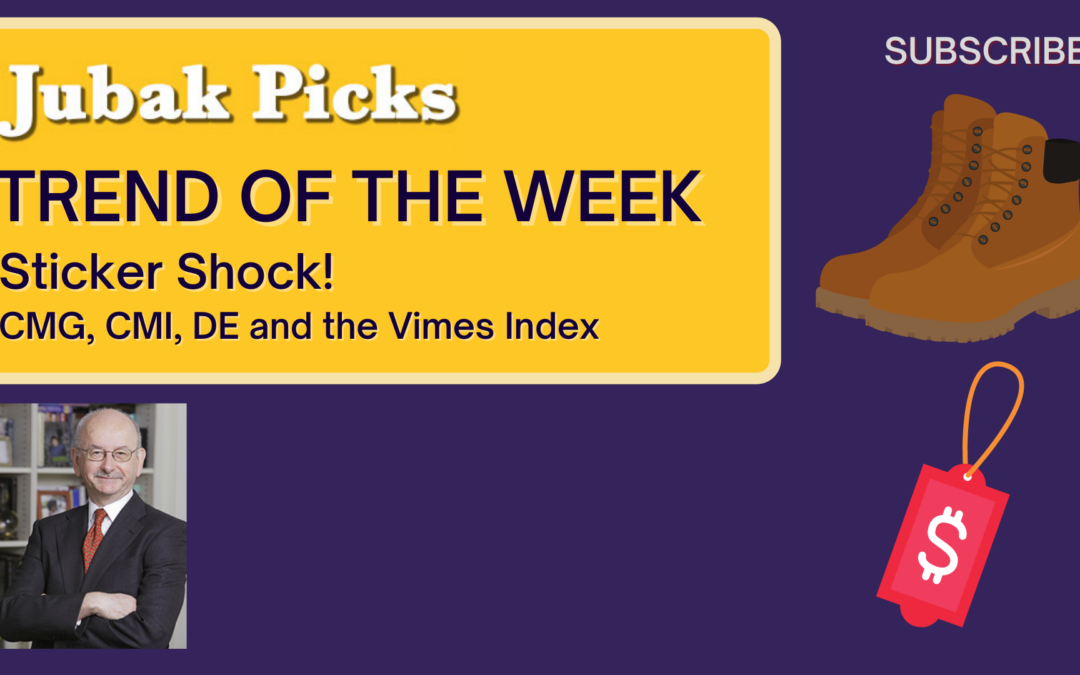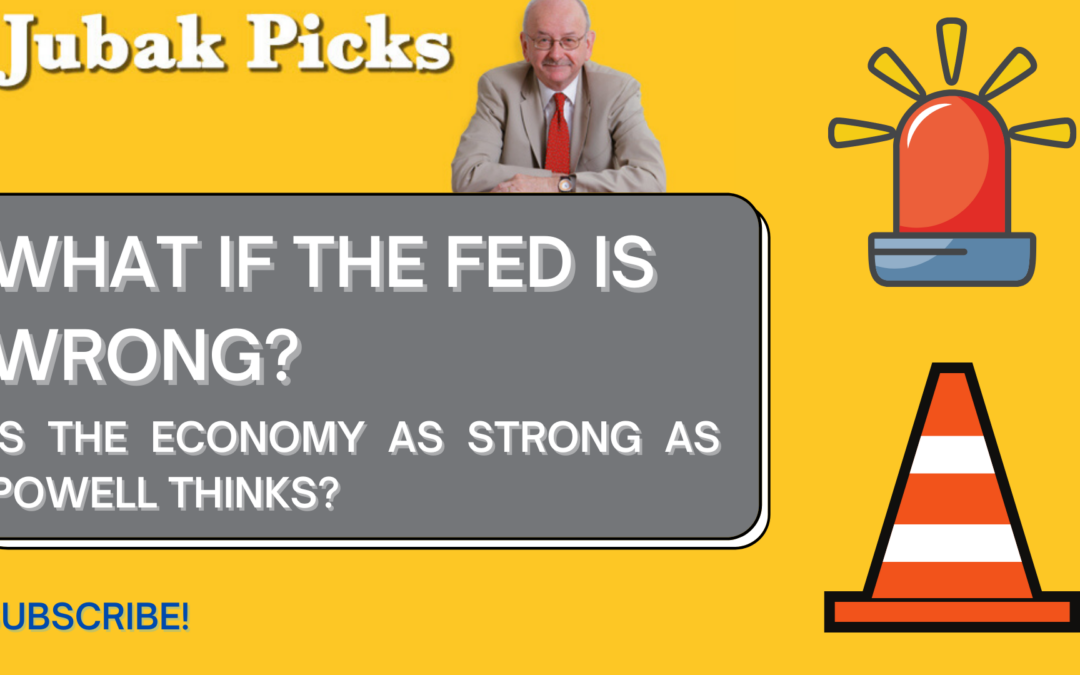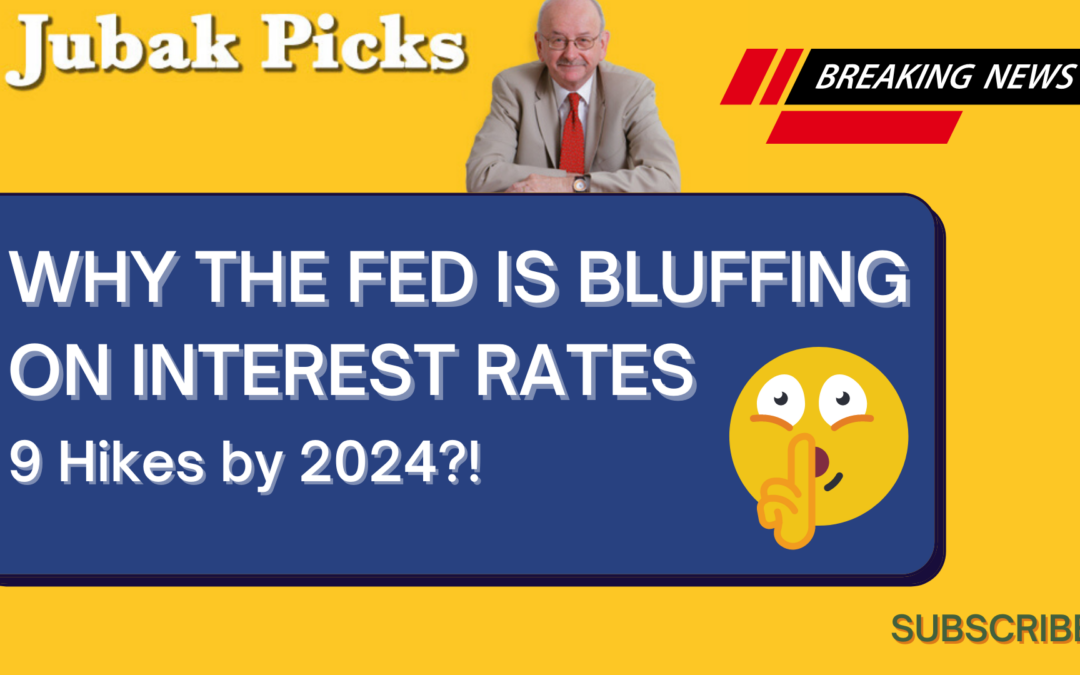
Please watch my new YouTube video: Trend of the Week Sticker Shock
I’m starting up my videos on JubakAM.com again–this time using YouTube as a platform. My ninety-eighth YouTube video “Trend of the Week Sticker Shock” went up today.

I’m starting up my videos on JubakAM.com again–this time using YouTube as a platform. My ninety-eighth YouTube video “Trend of the Week Sticker Shock” went up today.

The story to end last week was Amazon’s (AMZN) big earnings surprise on Thursday. Fourth-quarter sales increased 9.4% to $137.4 billion. Profit was $27.75 a share, aided largely by a pretax gain from the company’s investment in Rivian, which went public in November. Analysts, on average, projected revenue of $137.8 billion and earnings of $3.77 a share. (I’d note that the $22.75 a share in earnings and the projected $3.77 are not comparable due to that huge one-time gain from the Rivian IPO.) Wall Street was especially impressed by the performance of Amazon Web Services, the company’s cloud-computing division. AWS recorded sales of $17.8 billion, a 40% year-over-year increase, and operating profit of $5.29 billion. Adverting revenue for the quarter was was $9.7 billion, a 32% increase from a year earlier. Wall Street also gushed about the company’s decision to raise the price of its Amazon Prime membership by $20 a year to $139

Nothing new here in a way. The Personal Consumption Expenditure index, the inflation measure preferred by the Federal Reserve, jumped to an annualized 5.8% rate in December. That confirms the message from the 7% annualized increase in the Consumer Price Index reported earlier for December. The increase was the highest for the PCE index since 981. The December jump in the CPI was the largest since 1982. Either way you measure it, inflation is running at levels that the signaled interest rate increases in March just about inevitble.

I’m starting up my videos on JubakAM.com again–this time using YouTube as a platform. My ninety-third YouTube video “What if the Fed is wrong?” went up today.

When the Federal Reserve talks everybody listens. Although it’s extremely unlikely that the Fed will say anything of market-moving import after the Wednesday, January 26, meeting of its Open Market Committee. And it’s even less likely that the Fed will do anything. For any action and any meaningful commentary investor and traders will have to wait for the Fed’s March 16 meeting.


As of the close in New York on Wednesday, January 12, the Standard & Poor’s 500 was up 0.28%; the Dow Jones Industrial Average had edged higher by 0.11%; and the NASDAQ Composite had climbed 0.23%. Even though, the Labor Department reported this morning that inflation, measured by the headline Consumer Price Index (CPI) had climbed at a 7% year over year rate in December? That the biggest jump in the annual inflation rate since June 1982. The stock market logic on this is very clear.

The big news out of Federal Reserve Chair Jerome Powell’s told Congress appearance before the Senate today (President Joe Biden has nominated him for another term as head of the Fed) was that if inflation doesn’t come down, the Fed would more aggressively raise interest rates.“If we see inflation persisting at high levels, longer than expected, if we have to raise interest rates more over time, then we will,” Powell said in a Senate Banking Committee hearing. Yep, the Fed will fight inflation. “Dog bites man.” Film at 11.

Looking ahead at 2022, it’s not too hard to list the forces that will drive the financial markets. Putting those forces together and blocking out a schedule for their effects on the stock market. Well, that’s a lot harder. But let me try. Here’s my take on what’s ahead for 2022–Part 1 anyway

I’m starting up my videos on JubakAM.com again–this time using YouTube as a platform. My eighty-first YouTube video “Why the Fed is bluffing on interest rates” went up today.

The Federal Reserve’s Open Market Committee meets on Wednesday, December 15, and that the central bank’s interest rate setting say something about the speed at which it will wind down its monthly purchases of Treasuries and mortgage-backed securities. We’re pretty sure, but we don’t know with absolute certainty, that the Fed will announce a speed up of that wind down that would see the process of ending all of the Fed’s monthly purchases a month two early. June, maybe. That could be a big deal because the financial markets are convinced that the Fed would have to end its purchases of Treasuries before beginning any interest rate increase in, say, the last quarter of 2022. I think, but I’m certainly not positive, that the markets won’t show much reaction to the news

Stocks rose today, December 10, as a huge jump in CPI inflation exactly matched economists’ projections. As they say on the basketball court, “No surprise; no foul.” The Consumer Price Index (CPI) climbed at a 6.8% annual rate in November.